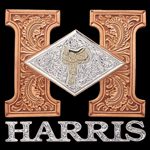Early Friday afternoon, House lawmakers passed the CARES Act, teeing up approximately $2 trillion in emergency aid to American taxpayers, small business, and non-profits and charities.
Because most equine enterprises characterize themselves as small businesses and include many non-profits such as state associations and equine rescue operations, the package addresses many challenges facing the horse industry.
The following are highlights, with more details to follow after President Trump signs the bill into law.
Small Business and Non-Profits
The bill bolsters the Small Business Administration’s (SBA) Paycheck Protection Program, establishing a maximum loan amount to $10 million through December 31, 2020. The bill defines eligibility for loans as a small business or 501(c)(3) nonprofit with not more than 500 employees “or the applicable size standard for the industry as provided by SBA.”
The bill further extends eligibility to sole-proprietors, independent contractors, and other self-employed individuals. This should provide assistance to trainers, farriers, and veterinarians, among other solo practitioners.
The bill also expands the Economic Injury Disaster Loan (EIDL) program currently available to small business to include “any individual operating as a sole proprietor or an independent contractor during the covered period” from January 31, 2020 to December 31, 2020.
Luckily for many breed-specific associations and state groups, for example, the bill extends the program to private non-profits. The American Horse Council (AHC) COVID-19 Resources web page includes links related to the EIDL program and will post updated information as details unfold.
Tax and Payroll Flexibility
Pandemic Unemployment Assistance – The bill extends unemployment benefits to the self-employed, independent contractors, those with limited work history, and others who are unable to work as a direct result of the pandemic. Self-employed professionals such as trainers and other independent contractors impacted by economic disruptions, including event cancellations, caused by “social distancing” should find this provision helpful.
Individual “Recovery Rebates” – Individuals with adjusted gross income up to $75,000 are eligible for a $1200 cash rebate from the IRS. The amount rises to $2400 for married couples.
Charitable Contribution Flexibility – The provision encourages Americans to contribute to churches and charitable organizations in 2020 by permitting them to deduct up to $300 of cash contributions, whether they itemize their deductions or not. This provision should blunt the impact of equine charities including rescue operations.
Charitable Contribution Increases – The bill increases the limitations on deductions for charitable contributions by individuals who itemize, as well as corporations. Technical details to follow.
Employer Payroll Tax Flexibility – The bill allows employers and self-employed individuals to defer payment of the Social Security tax until 2021 and beyond. Employers generally pay a 6.2-percent Social Security tax on employee wages. While the scope of this provision is not yet clear, it could extend to equine equipment makers and other manufacturers and merchants that comprise the complex supply-chain for the horse industry.
Stay tuned to all our channels for the latest developments.
CLICK HERE to visit the American Horse Council website.









